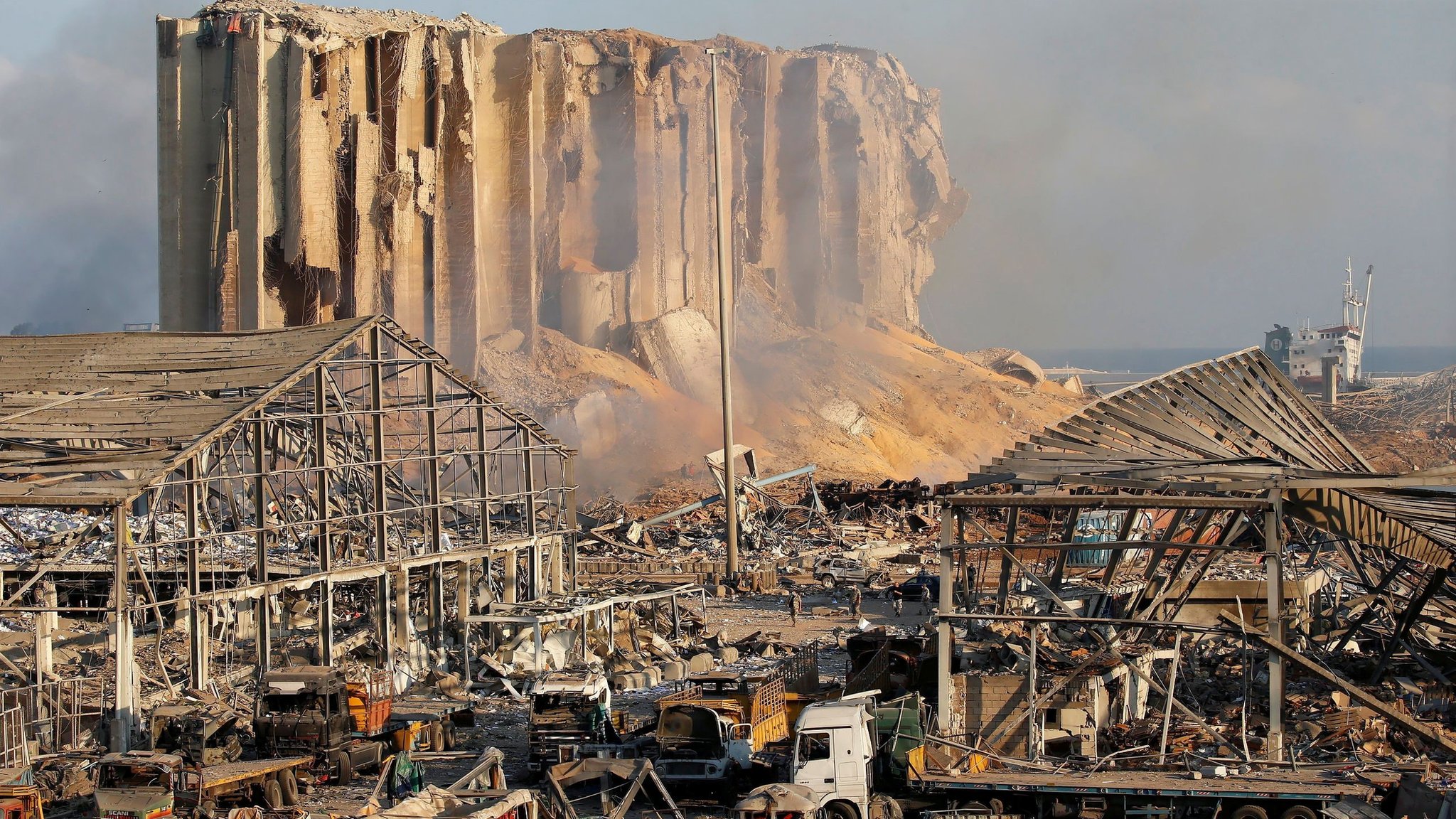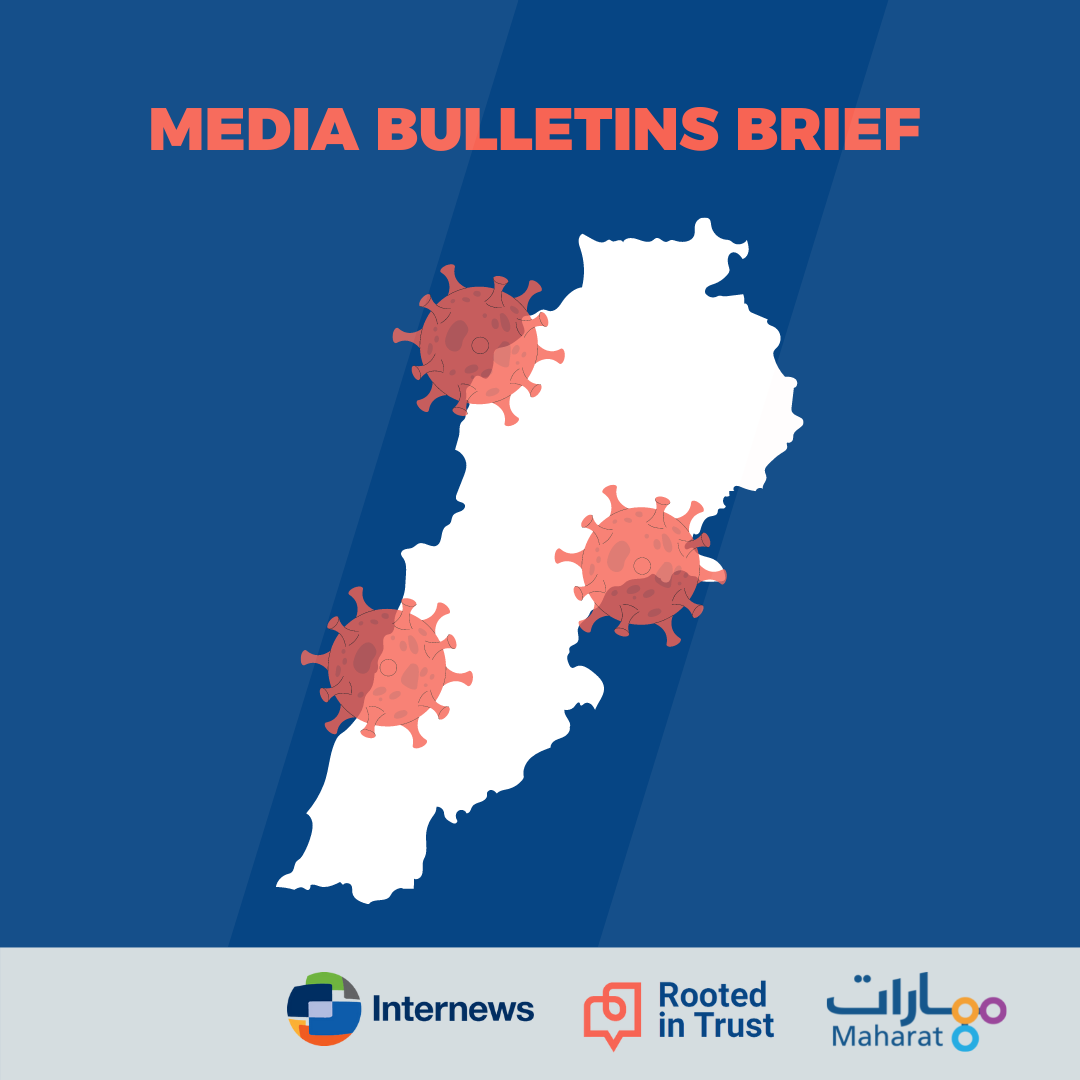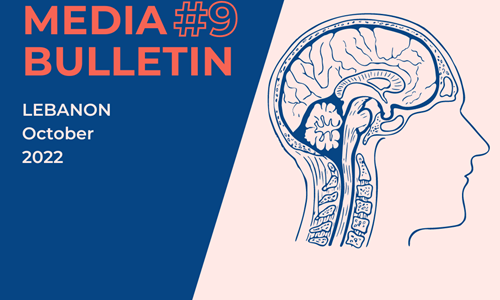
A joint letter calling on the Human Rights Council to establish a fact-finding mission into the Beirut port blast
To the Permanent Representative of Member and Observer States of the United Nations Human Rights Council
Excellencies,
We, the undersigned Lebanese and international organizations, survivors and families of the victims are writing once again to urge you to support the adoption of a resolution by the United Nations Human Rights Council at its 54th regular session to establish an international, independent and impartial fact-finding mission into human rights violations related to the Beirut port explosion of 4 August 2020.
On the third anniversary of the explosion, we are no closer to justice and accountability for the catastrophe that damaged half of the capital city and killed at least 236 people, including nationals of Lebanon, Syria, Bangladesh, Philippines, Egypt, Palestine, Ethiopia, Pakistan, the Netherlands, Canada, Germany, France, Belgium, Australia, the United States and Iran.
Instead, the Lebanese authorities have repeatedly interfered with, obstructed and undermined the domestic investigation. The politicians charged with crimes related to the explosion have filed over 25 requests to dismiss the lead investigator, Judge Tarek Bitar, and other judges involved in the case, with the latest series of challenges resulting in the suspension of the investigation since December 2021.
When Judge Bitar attempted to resume the investigation in January 2023, Lebanon’s top prosecutor, Ghassan Oueidat, whom Bitar had charged in the case, filed a lawsuit against Bitar, issued a travel ban against him, and ordered the release of all those suspected of involvement in the explosion who remained in detention. At least one defendant has since fled the country. The prosecutor’s unprecedented move, amid rampant political interference and which violates the law, bypassed the ongoing criminal investigation into the explosion. The Beirut Bar Association, the Lebanese Judges Association and the Lebanese Coalition for the Independence of the Judiciary all criticized his decision to release the remaining suspects from detention as illegal.
The UN Special Rapporteur on the independence of judges and lawyers, Margaret Satterthwaite, condemned the blatant political interference in the investigation and expressed her concern that “former state officials and others who have been implicated in the case have disingenuously resorted to recusal proceedings and other challenging actions directed at the investigating judges appointed to examine the case.” Satterthwaite also noted that there is an ongoing media campaign to discredit Judge Bitar and said that he “reportedly received credible death threats and currently has military protection.”
In a positive step, Australia delivered a joint statement at the 52nd session of the Human Rights Council on behalf of 38 states, expressing concern that the domestic investigation into the explosion had been “hampered by systemic obstruction, interference, intimidation, and a political impasse.” The statement called on the Lebanese authorities to abide by their international human rights obligations and safeguard the independence of the judiciary, and to carry out a swift, independent, impartial, credible and transparent investigation.
However, more than five months since Australia delivered the joint statement, the Lebanese authorities have failed to take any steps to ensure that the domestic investigation can move forward or to adopt a law guaranteeing the independence of the judiciary in line with international standards.
In order to show that such deliberate inaction has consequences, and to uphold the right of the victims and survivors to truth, as well as their right to access to justice and effective remedies, including reparation, UN member states should put forward a resolution at the Human Rights Council establishing a fact-finding mission into the explosion that would:
- Establish the facts and circumstances of the explosion, including its causes, with a view to establishing state and individual responsibility;
- Identify human rights violations arising from the Lebanese state’s failure to protect the right to life;
- Identify the obstacles in the investigation of the blast that would constitute a violation of the state’s duty to investigate gross violations of international human rights law effectively, promptly, thoroughly and impartially and, where appropriate, to take action against those allegedly responsible in accordance with domestic and international law;
- Identify violations of the victims’ rights to access to justice and effective remedies, including reparation; and
- Formulate recommendations to ensure justice and reparations for the families.
The findings of an international, independent investigation, conducted in accordance with the highest international standards and practices, will support the Lebanese authorities investigating the explosion as well as any effort in Lebanon and in third countries where individuals have filed criminal and civil cases to hold accountable any individual or any legal entity reasonably suspected of responsibility. Further, the investigative mission would make recommendations to Lebanon and the international community on steps that are needed both to remedy the established violations and to ensure that these do not recur.
The survivors of the explosion and the families of the victims have previously sent two letters to the member and observer states of the Human Rights Council urging them to support a resolution establishing an international investigation. They sent another letter to the UN High Commissioner for Human Rights in March 2022. In addition, 43 members of the Lebanese Parliament have also sent letters to the Human Rights Council with same requests.
The Lebanese authorities have been given every opportunity to demonstrate that they are willing and capable of holding those responsible for the explosion to account. But three years later, they have proven that they will use every tool at their disposal – legal and extra-legal – to evade accountability and perpetuate a culture of impunity in the country.
In light of this, Human Rights Council member states have a responsibility and the opportunity to support the Lebanese people’s calls for accountability, the rule of law and protection of human rights. Uncovering the truth of what happened on 4 August 2020 is the only way to prevent such a tragedy from occurring in the future and is pivotal to ensure redress after the devastation of that day.
List of signatories:
Groups:
Accountability Now
Alternative Media Syndicate
Amnesty International
Dar Al Jadid
Daraj
Heinrich-Böll-Stiftung
Human Rights Research League
Human Rights Watch
International Commission of Jurists
IPP RC BEIRUT COSMOPOLITAN
Justice for Lebanon
Kulluna Irada
Legal Action Worldwide
Lokman Slim Foundation
Mada
Maharat Foundation
MENA Rights Group
NOUN Collective
Our City, Our Silos Campaign
Pax for Peace
Samir Kassir Foundation
SMEX
Tajammo Mouwakabet al Thawra
The August 4th Collective
The Legal Agenda
The socio-Economic justice initiative MAAN
TIMEP
UMAM Documentation and Research
World Lebanese Cultural Union
Individuals, survivors, families of the victims:
Abdallah Dfouni
Abdallah Halabi
Abdallah Mohamad
Abed Darazi
Ahmad Fatfat
Ahmad Mohamad
Alaa Halabi
Alaa Kaddah
Alessandro Obeid
Alexandre Ibrahimchah
Alfred F. Jelwan
Aline El Fady
Amale Dfouni
Amani Al Roz
Amin Lebbos
Amine Bachir
André Najm
Andre Sleiman - Lebanon Country Representative, Democracy Reporting International
Andrea Arslanian
Angie Meskawi
Anna Marie Obeid
Anthony Lorfing
Anthony Naoum
Anthony Obeid
Antoine Bou khaled
Antoine Kassab
Antoinette Khouri
Areej Azzam
Arze Salloum
Asma Meskawi
Asma-Maria Andraos
Aya Meskawi
Azmi Haddad
Badri El Meouchi
Bassam Khoury
Bouchra Boustany
Caline Chbeir
Candice Lorfing
Captain Riad Halabi
Carine Farran
Carine Kesserwani
Carine Panayot
Carine Tohme
Carine Zaatar
Carl Boustany
Carla Jazzar
Carlos Obeid
Carol Kozah
Carole Akiki
Caroline Moukarzel
Catherine Chalhoub
Cecilia Assouad
Cedric El-Adm
Celine Najm
Chadia El Meouchi Naoum
Charbel Moarbes
Charles Nehme
Chibli Mallat
Christine Porcherot
Claude Harik
Craig Oehlers
Cyane Haroun
Cybele Asmar
Cyril El-Adm
Dalal El-Adm
Degaule Abourjeily
Diane Tabib
Dina Sue Mussallam
Dolly Kanaan
Doris Najm
Dr Christina Khater
Dr. Nasser Saidi
Elias Youssef Akiki,
Élie Panayot
Elie Touma
Elise Moukarzel
Elvia Saghbini
Emmanuel Najm
Enya alford
Fadia Berberi
Fady Obeid
Fares Soueid
Ferris Wehbé
Fouad Rahme
Général Maroun Hitti
George Bazergy
Georges Ibrahimchah
Georges Tamer
Georges Zaarour
Ghada Chahla
Ghassan G. Haddad
Giancarlo Chalhoub
Guy Chidiac
Hanan Khoury
Hassane Rifaï
Henri Najm
Hilda Haddad
Hisham Farhat
Hussein Ali Ataya
Isabelle Eddé
Jacques Dib
Jad Kobeissy
Jamil Mrouwé
Jean Boustani
Jean-Marc Matta
Jean-Paul Kandalaft
Jeremy Alford
Jihad Nehme
Jihane Dagher Hayek
Jimmy Dahdah
Joanne Aoun
Joe Kozah
Joelle Estefane
Joseph Abikhalil
Joseph Najm
Karen Toubia
Karim Choueiry
Karim Naoura
Karine Makhlouf
Karine Mattar
Kayla Haroun
Khaira Halabi
Khajak Papazian
Khalil Antoun
Khodor Sino
Kyra Panayot
Lara Saade
Lara Sayegh
Lara Zeitouny
Larissa Farés
Laura Khoury
Lawyer Assaad Hage
Layale Abdallah
Layla Karameh
Lila Haroun
Lina Rizkallah
Lina Sahmarany
Louisa Bechara
Lyna Comaty
Maha Obeid
Maher Achi
Marc Dfouni
Marcelle Moussa
Mariana Karam
Marianne Chebel Issa El-Khoury
Marie Nader
Marie Vida Obeid
Marine Aoun
Maroun Darwiche
Mary Elias Akiki
Maud Naggear
Maurice Sursock
Maya Majzoub
Mayssa Najm
Melissa Fardel, Legal Advisor, Switzerland
Michel Awad
Michel Haroun
Mikita alford
Mireille Bazergy Khoury
Mireille Habib
Mirna Bassoul
Mirna Habboush
Mohamad Chamseddine Majzoub
Mona Fayad
Myra Rizkallah
Myrna Mezher Helou
Myrna Panayot
Nabil Najm
Nabil Panayot
Nada Akiki Abi Akl
Nada Kilzi Saad
Nadine Haroun
Nadine Khazen
Nagham Akoumi
Najwa Hayek
Naoum Abirached
Nawal El Meouchi
Nay Najm
Nayla Kilzi
Nazih El-Adm
Nicolas Dahan
Nicolas Fayad
Noelle Kandalaft
Noha Hojeyban
Nohad Maroun Akiki
Nora Abou Chacra
Olga Kavran, Founder, IUSTICOM, Netherlands
Paola Rebeiz
Paola Skaff
Patrice Cannan
Patrice Kanaan
Patricia Haddad
Patrick Sacy
Paul Attallah
Paul Karam
Paul Naggear
Pierre Assouad
Pierre Berberi
Pierre Gemayel
Pierre Latti
Pierre Naggear
Pina Lebbos
President Chucri Sader
Prof. Philip A. Salem, Houston
Raafat Majzoub
Rachel Moukarzel
Rachid Rizkallah
Rainier Jreissati
Raja Tabib
Ralph Dfouni
Rasha Al Amir
Ray Haddad
Raymond Mitri
Rayya Najm
Reem bou Abdallah
Reem Rafeii
Reina Sfeir, Director of the Human Rights Legal Clinic, ULS
Richard Chalhoub
Richard Jreissati
Rima Malek
Rima Nasser
Rodolphe Attallah
Ronald Farra
Rony Mecattaf
Rosy Abla
Rosy Sabbagh
Ruwaida Rafeii
Ryan Obeid
Samar Bassil
Samia El Meouchi Debbané
Samir Asmar
Samir El Khoury
Samir Masaad
Sanaa Assaad
Sandra Daguer
Sara Jaafar
Sarah Copland
Semaan Karam
Serena Jelwan
Souad Nachawati
Soulaf al Hajj
Stephen J. Stanton, World Convenor
Tamer Meskawi
Tania Alam
Ted dfouni
Tina jarrous
Tony G. Haddad
Tony Lamia
Tony Najm
Toufic Rizkallah
Tracy Awad Naggear
Vartan Papazian
VC NDU Board of Trustees
Vera Fayad
Vicky Attallah
Vicky Zwein
Wadad Lahd
Wadad Ziadeh
Walid Aboulhosn
Wasseem Kabbara
William Ibrahimchah
Wisam Masri
Wissam Baydoun
Yasmina Karam
Yasmina Tawile
Youmna Hojeyban
Yvonne Kfouri
Zahia Najm
Zeina Husseini
Zeina Sfeir
Ziad Richa
Zita Salameh
Families of the following firefighters:
Charbel Hitti
Charbel Karam
Eli Khouzamy
Joe bou Saab
Joe Noun
Misal Hawwa
Najib Hitti
Ralph Mellehy
Ramy Kaaky
Sahar Fares





